Ben-Hur
 for sequences of violence and disturbing images.
for sequences of violence and disturbing images.
Reviewed by: Raphael Vera
CONTRIBUTOR
| Moral Rating: | Better than Average |
| Moviemaking Quality: |
|
| Primary Audience: | Adults Teens |
| Genre: | Adventure Drama Remake Adaptation 3D IMAX |
| Length: | 2 hr. 21 min. |
| Year of Release: | 2016 |
| USA Release: |
August 19, 2016 (wide—3,084 theaters) DVD: December 13, 2016 |
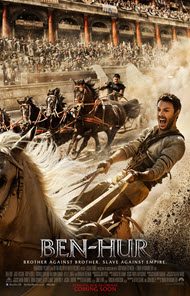

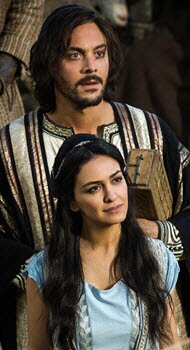

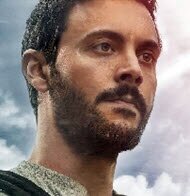

Seeking revenge/retribution

Lew Wallace’s novel, Ben-Hur: A Tale of the Christ, has been called “the most influential Christian book of the nineteenth century”. He was not saved when he began the novel, but during the research and writing he became convinced of Christ’s deity. Wallace’s grave marker says, “I would not give one hour of life as a soul for a thousand years of life as a man.”
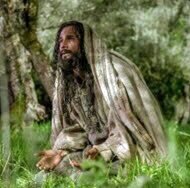
How did Jesus Christ die? Answer
Was Jesus Christ only a legend? Answer
Is Jesus Christ a man, or is he God? Answer
If Jesus is God, how could he die? If Jesus died on the cross, then how can he be alive today? Answer
Was Jesus Christ God, manifest in human form? Answer
Is Jesus Christ really God? Answer
If Jesus was the Son of God, why did He call Himself the Son of Man? Answer
TRINITY—How can one God be three persons? Answer
JESUS’ CHARACTER—Is Christ’s character consistent with his high claims? Answer


| Featuring |
|---|
|
Jack Huston … Judah Ben-Hur Morgan Freeman … Sheik Ilderim Sofia Black-D'Elia … Tirzah Ben-Hur, Judah’s sister Toby Kebbell … Messala, a Roman army officer Ayelet Zurer … Naomi Ben-Hur, Judah’s mother Rodrigo Santoro … Jesus Christ See all » |
| Director |
| Timur Bekmambetov — “Wanted” (2008), “Abraham Lincoln: Vampire Hunter” (2012), “Night Watch” (2004) |
| Producer |
|
Mark Burnett (husband of Roma Downey) Film Production Consultants LightWorkers Media See all » |
| Distributor |
Review: “Ben-Hur” (1959)
“In the time of the Messiah…”, and so begins the story of a Hebrew Prince named Judah Ben-Hur (Jack Huston) and the Roman, Messala (Toby Kebbell), that he would call brother. Messala had been adopted into Jerusalem’s Royal house of Hur and raised as their own, after he had been orphaned as a child, but, one day, left them in order to seek his destiny serving in the Roman army.
Years of fighting as a soldier of Rome will give Messala the chance to redeem his disgraced family name, rise through the ranks of the Roman army and return with the stature and power he left the house of Hur to establish. However, when he returns to Jerusalem, his growing admiration for the “glory of Rome,” coupled with his personal ambition, will put him at odds with his former “brother,” cost him the burgeoning love he has for Ben Hur’s sister Tirzah (Sofia Black-D'Elia) and risk his very soul in the process.
Beginning with the start of the tale’s climactic chariot race, wherein Messala vows to end his erstwhile brother’s life on the track, the film then flashes back to all the events that led up to this tragic confrontation. Those who have grown up seeing the 1959 version of “Ben-Hur: A Tale of the Christ” starring Charlton Heston will be astonished by some of the changes in both the characters, their stories, and the visuals, the last of which may be a major area of concern for filmgoers.
Objectionable Content
Violence: Heavy. Men are shown fighting, beaten, and bloody throughout the film. The film does not spare the audience from witnessing some of Messala’s battles, in all their blood-thirsty glory, and there are several scenes showing a fight’s aftermath, with dead bodies strewn about the landscape and men lifeless floating in the water. A young man’s open wound is treated by a knife heated by fire, and there are more than a few scenes of the brutality Rome was known for. Men are cut down by swords, arrows, spears, set on fire, trampled and crushed, one while being chained to the bow of a ship (blood is shown spraying onto the screen).
We are also briefly witness to some of our Lord’s heartbreaking final hours leading up to and including his crucifixion as part of Almighty God’s plan to pay the price for mankind’s sins. The scene’s of violence and death make this film something that I urge parents take seriously—and hopefully prevent young and impressionable minds from seeing.
Language: Minor. “Hell” is uttered once, and the Lord’s name is taken in vain three times—“My G*d” (2), “Oh My G*d” (1). There is one vague line about some women being abused that will likely not be understood fully by children, but whose sinister intent will be recognized by others.
Sex/Nudity: Mild. Some kissing is shown, usually on the cheek, and a husband and wife are seen in bed together from the shoulders up, but nothing is visible.
Lessons
”Ben-Hur” is an often interesting film, told during a barbaric time of human history, that manages to touch upon some powerful biblical themes including that of vengeance, love, but most of all mercy and forgiveness.
Vengeance: Ben-Hur is bent on revenge for all the loss and pain he has endured at Messala’s hands. The Word of God is clear on this and offers a far better path, if we would only trust Him.
“Do not take revenge, my dear friends, but leave room for God’s wrath, for it is written: “It is mine to avenge; I will repay,” says the Lord. On the contrary:
“If your enemy is hungry, feed him;
…if he is thirsty, give him something to drink.
In doing this, you will heap burning coals on his head.”
Do not be overcome by evil, but overcome evil with good.” Romans 12:19-21
Love: Among all the themes that run through “Ben-Hur,” perhaps the most prevalent is that of love—the love that Esther, a Jewish slave (Nazanin Boniadi) born in the house of Hur, has always had for Ben-Hur, the brotherly love that blinds Ben-Hur to the changes in Messala, and, lastly, the love that, once an essential part of Messala, now with its absence threatens to bring him to ruin. No greater definition of love has ever been given than that which we find in the letter to the church in Corinth:
“Love is patient, love is kind. It does not envy, it does not boast, it is not proud. It does not dishonor others, it is not self-seeking, it is not easily angered, it keeps no record of wrongs. Love does not delight in evil but rejoices with the truth. It always protects, always trusts, always hopes, always perseveres.” —1 Corinthians 13:4-7
Mercy: Ben-Hur disagrees with the methods of the zealots who are in violent resistance to Rome, yet still tends to one of them brought to him wounded. Sheik Ilderim (Morgan Freeman) is seen performing a costly act of charity that seems somewhat out of character for the fortune-focused Arab. Lastly, Esther finds a new life, after hearing the words of Jesus and shares her joy by spreading the Word and helping those less fortunate.
However, the most powerful example of mercy shown in the film is when the thief/zealot hanging on his own crucifix to the right of our Lord admonishes the other crucified thief, while admitting to his own guilt.
“We are punished justly, for we are getting what our deeds deserve. But this man has done nothing wrong. Then he said, ‘Jesus, remember me when you come into your kingdom’.”
Jesus answered him, “Truly I tell you, today you will be with me in paradise.” —Luke 23:43
The Word of God gives us a glimpse at the merciful heart of the Almighty, as well as his desire that we likewise show mercy to one other.
“For I desire mercy, not sacrifice, and acknowledgment of God rather than burnt offerings.” —Hosea 6:6
“This is what the Lord Almighty said: ‘Administer true justice; show mercy and compassion to one another.” —Zechariah 7:9
Despite a few historical inaccuracies, less than credible character motivations (specifically regarding the mother and sister’s fate), and a sometimes abrupt and awkward narrative, “Ben-Hur” is a reasonable take on a familiar story that will likely have more appeal with the current generation, unfamiliar with the stellar 1959 version, let alone the beaufifully written, yet lengthy tome that is the original source material. The surprisingly redemptive final act alone makes it worth the price of admission, and so I recommend this film for both teens and adults alike.
Violence: Heavy to extreme / Profanity: Minor / Sex/Nudity: Mild
See list of Relevant Issues—questions-and-answers.


Moral rating: Good / Moviemaking quality: 4
Moral rating: Excellent! / Moviemaking quality: 4½
Moral rating: Better than Average / Moviemaking quality: 4½
Moral rating: Excellent! / Moviemaking quality: 5
Moral rating: Excellent! / Moviemaking quality: 5
The re-uniting of Esther and Ben Hur is shown in a brief moment of kissing. The next scene is of the two of them on the ground, several feet apart from each other. Nothing immoral is shown, so it’s all a matter of whether you want to impute sin on the two of them, or not. I choose not to and don’t accept those who are sticklers for even a hint of worldliness. I’m in the USA, and here it’s “innocent until proven guilty.” I wish other films were as pure as this one. See all »
Moral rating: Excellent! / Moviemaking quality: 5
The other main drawback was that the actor portraying Christ was hit with a stone and bleeding while shielding someone; this explicit showing of His blood in a fictitious scene was wrong (in my opinion, to diminish His precious blood as the blood of the sacrificial lamb) and likely a compromise with the studio to get it released. Although to be fair, the movie did focus on His blood at the cross—so, as I said, the ending saved the movie spiritually. See all »
Moral rating: Good / Moviemaking quality: 5
Moral rating: Good / Moviemaking quality: 5
The film had a feeling of redemption, something missing from contemporary cinema. Marco Beltrami’s score though was unmemorable and one big mistake was having a pop song kick off the final few moments of the film. A historical drama needs just instrumental orchestral music to allow time for the viewer to digest what they’ve seen and be “in the moment.” As with other films featuring Christ, tears streamed down my face at those key moments, particularly the crucifixion. The film Risen earlier this year was a “mini Hur” in terms of story to me but as the scenes were shot similarly, I’d consider “Risen” almost a Hur sequel (though more moving), as it starts with the crucifixion and then resurrection. In Wallace’s Hur book, he doesn’t show the resurrection, thus the films don’t.
Moral rating: Better than Average / Moviemaking quality: 5
First, let’s start with the story. Whoever wrote the script did an awesome job adapting the novel for the screen. For those expecting a remake of the 1959 Charlton Heston classic, sorry to disappoint you… aside from a few plot points, this one is different. I was deeply moved by how the theme of forgiveness was presented here. From a story standpoint, this is one of the best I’ve seen in a while. See all »
Moral rating: Better than Average / Moviemaking quality: 4½
Moral rating: Better than Average / Moviemaking quality: 4
Moral rating: Average / Moviemaking quality: 3½
Moral rating: Average / Moviemaking quality: 3
The music for the leper scene and the chariot race, along with the aforesaid scene, was good, but that is all the compliment I can pay to this version. The acting was okay, but the writing was dreadful, and the directing even worse. Biblically speaking, there is more violence here, some of it graphic, than in the 1925, 1959 and 2003 versions, but no profanity (save for a few inappropriate uses of God’s Name) and a brief scene of Esther and Ben-Hur in bed together (seen from the shoulders up). The PG-13 rating is appropriate, and should be observed. See all »
Moral rating: Offensive / Moviemaking quality: 2½
We see on the opening shots were terrible and boring, worse than made for TV shots. The Jesus scenes were almost blasphemy, putting words in His mouth that He never said. They made Jesus look like a street hippy type with not one ounce of authority on his face. There were no sweeping vast wide gigantic scenes that compare to the 1959 version of William Wyler’s film. To compare the music to the Miklós Rózsa composition of the 1959 Ben-Hur, was no comparison at all. This version sounded like they hired college kids to put the music together with three musical instruments. Music Comparison: Horrible at best. I was going to walk out on this one, but I said to my wife, I’ll stick around just to see the boat battle and chariot race scenes and see what they do with the over $100,000,000 they spent on this movie, but so far as of the 9/11, 2016 date it made a little over $25-million. Not enough to recoup. I don’t recommend this movie to anyone. It did not inspire me at all.
Moral rating: Offensive / Moviemaking quality: 1½
Although I found the action/violence terrific, some people might get grossed out at the head rolling by and people catching on fire in the sea battle, along with a grotesque image of a young zealot’s wound. It appears that Judah uses God’s Name in vain several times, though this is debatable. There is no cursing. Judah and Esther are seen together in bed once, though only from the shoulders and above. Be sure to see this movie, especially since the ending is so much better from the other versions.
Moral rating: Good / Moviemaking quality: 5
PLEASE share your observations and insights to be posted here.
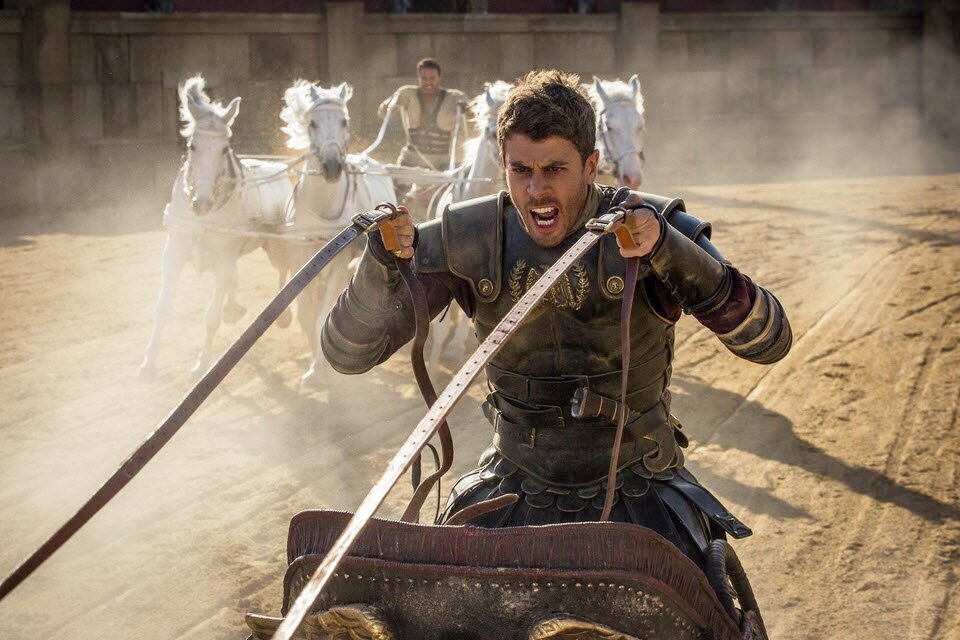


This version does a superior job of depicting, by contrast, how revolutionary Jesus’ teachings were and how compassion, mercy, love and forgiveness can be difficult, but the only way to true peace. The acting, costumes, sets, and cinematography are excellent. Instead of a CGI-fest, the chariot race with creative and amazing camera angles looked and felt more sand-in-your-face realistic. Overall, very well done.
My Ratings: Moral rating: Better than Average / Moviemaking quality: 4½